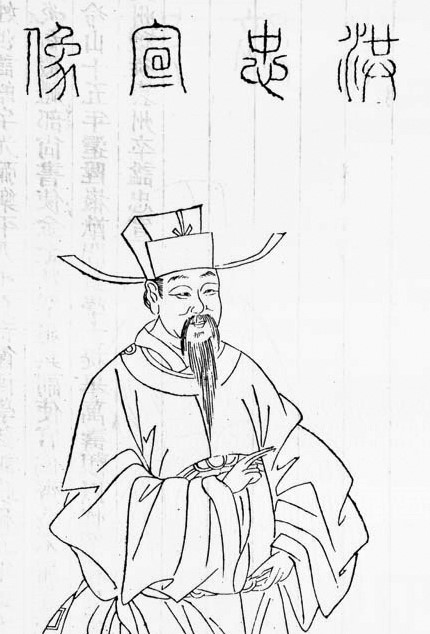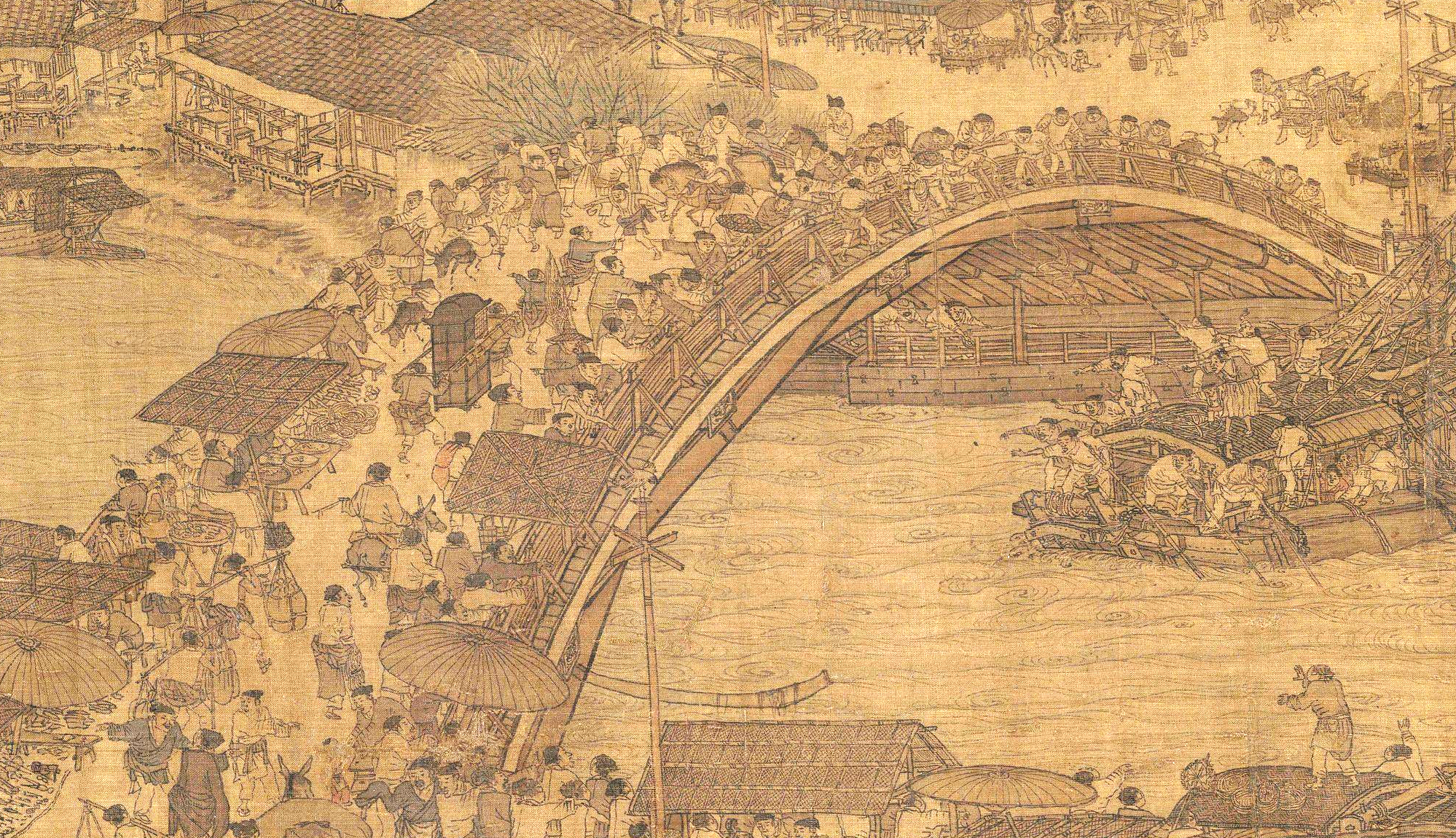The Official
我願意用自己的生命來換十萬人生命,希望知州將糧發放給岌岌可危的百姓。
I am willing to exchange my own life for the lives of 100,000 people. I only hope that you, the prefect, will distribute food to those who are at risk.
Although the fictional character Hong Bo is not based on any one historical figure, there are definite similarities between him and his real-life countryman Hong Hao (洪皓). Not only did they hail from the same county, but, more importantly, both are representative of the benevolent official: a man who believed in the government as a force of good and cared for the people he served. Hong Hao lived through natural disasters, rebellions, the fall of northern China, and ruthless partisanship: a quick biographical sketch thus gives us some idea of what the trajectory of a minor official’s life might have been like in the tumultuous Northern Song dynasty (960–1127).

Hong Hao was born in Poyang County, West Jiangnan (present-day Jiangxi), in 1088. His father was an undistinguished provincial official with no powerful connections to speak of. Nevertheless, at the relatively young age of 27, Hong Hao managed to pass the prestigious metropolitan exams in the capital. His first bureaucratic post was as registrar of Ninghai County (in present-day Zhejiang), where he dealt with tax matters and served as the magistrate’s assistant.
At this time, Ninghai’s tax structure was severely imbalanced in favor of the wealthy. Hong Hao, recognizing the inherent unfairness of the system, implemented reforms that brought some five thousand households out of poverty and helped the government win the support of the local people. It is worth noting the context of the times: this was a period of growing unrest and rebellion throughout the empire, and yet Hong Hao managed to win the support of his county despite a growing trend of unreasonable tax burdens, extensive corruption among local officials, grueling labor service, and military conscriptions that were so onerous that many peasants risked either mutilating their bodies or abandoning their hometowns in order to avoid having to serve as a soldier.
Hong Hao’s next assignment in 1124 sent him to Xiu Prefecture (also in Zhejiang), where he served as secretary. That same year, a devastating flood resulted in widespread homelessness and famine throughout the region. Again, Hong Hao dared to buck the system. First, he offered his official residence to shelter countless refugees. He then persuaded the prefect to carry out a famine relief program, which began with selling stockpiled grain at a reduced price and ended with Hong Hao proposing to intercept grain from an imperial tribute and redistribute it to those who were starving.
Stealing food from the imperial court, of course, was a crime punishable by death. But Hong Hao reportedly told his superior: “I am willing to exchange my own life for the lives of 100,000 people. I only hope that you, the prefect, will distribute food to those who are at risk.” The prefect initially rejected Hong Hao’s plan, but after coming to terms with the scale of the catastrophe, eventually changed his mind. Later, when a minister from the imperial court came to investigate, he was so impressed with the relative orderliness of Xiu Prefecture when compared with the other flooded regions that he wound up recommending Hong Hao for promotion rather than holding him accountable.
Unfortunately, not one year later, another disaster struck: the Jurchen, predecessors of the Manchus, invaded the imperial heartland (partly by way of Wild Goose Pass and Taiyuan), plunging northern China into chaos. By 1127 the capital had fallen, the imperial family had been captured, and a mass exodus to the south had begun.
In 1129, the emperor sent Hong Hao as an envoy to the newly established Jurchen kingdom. Despite knowing that he was unlikely to find his way back home, Hong Hao accepted. After fifteen years as a hostage, he was finally allowed to return to southern China, though he considered his mission a failure. While the emperor initially praised his loyalty to the Song government, the outspoken and principled Hong Hao eventually became entangled in court politics and was dismissed from his post. Not content with merely sending him into retirement, his political rivals further accused him of having “shaken the country.” He was subsequently exiled to the undeveloped and disease-ridden Ying Prefecture of Guangdong—in other words, the ends of the earth. After nine years in exile, he was finally rehabilitated at the age of 68, but died during his return journey home.
Hong Hao had three sons, the youngest of whom was Hong Mai. An official like his father, Hong Mai is particularly famous for having compiled The Record of the Listener, a collection of strange and supernatural tales that reveal the beliefs and everyday living conditions of the Song dynasty.
